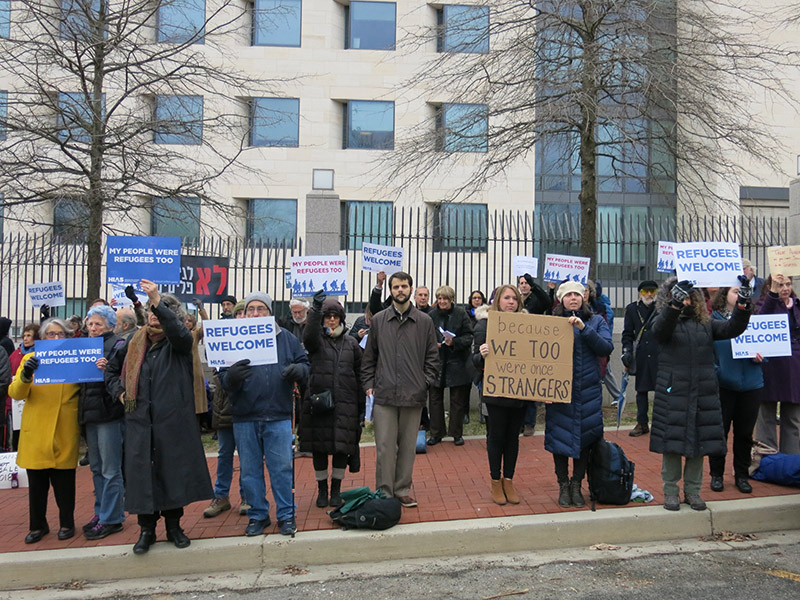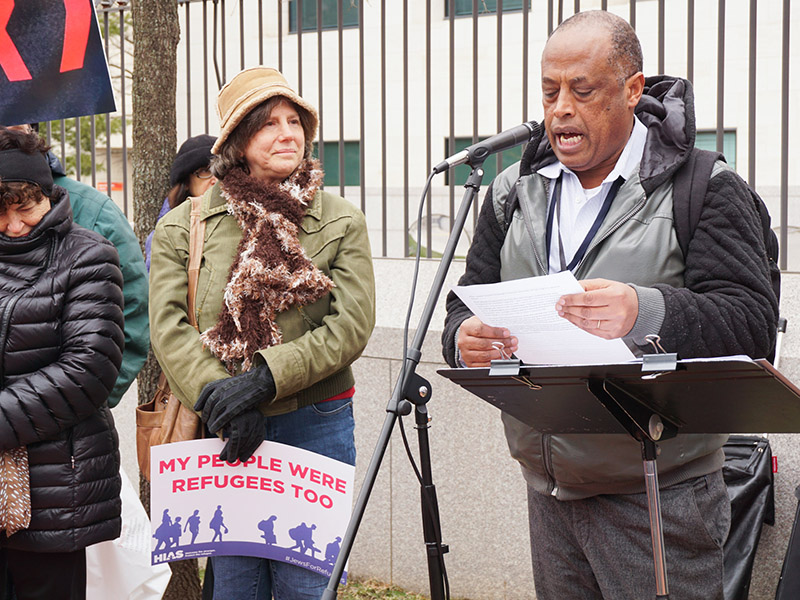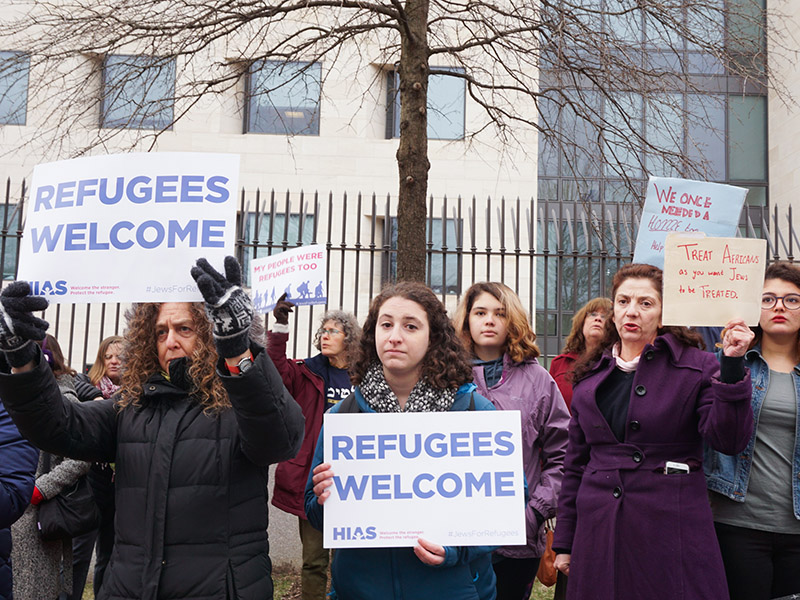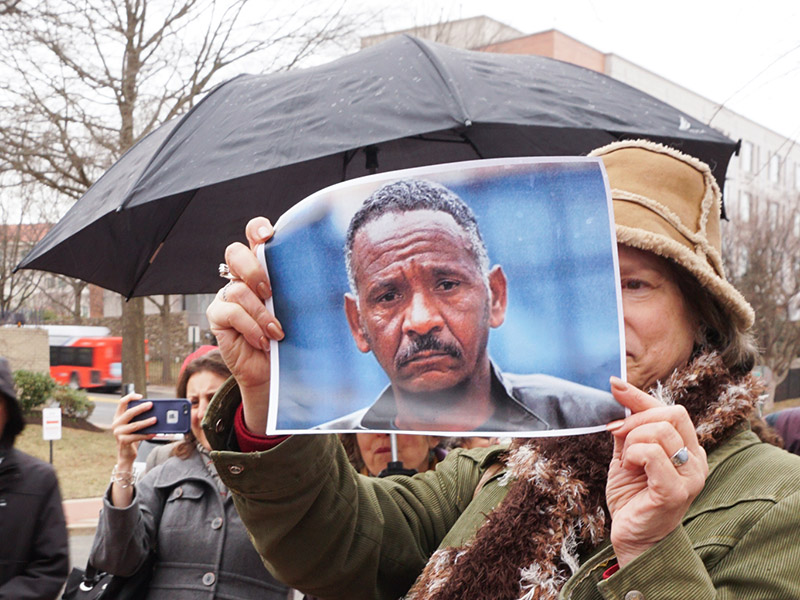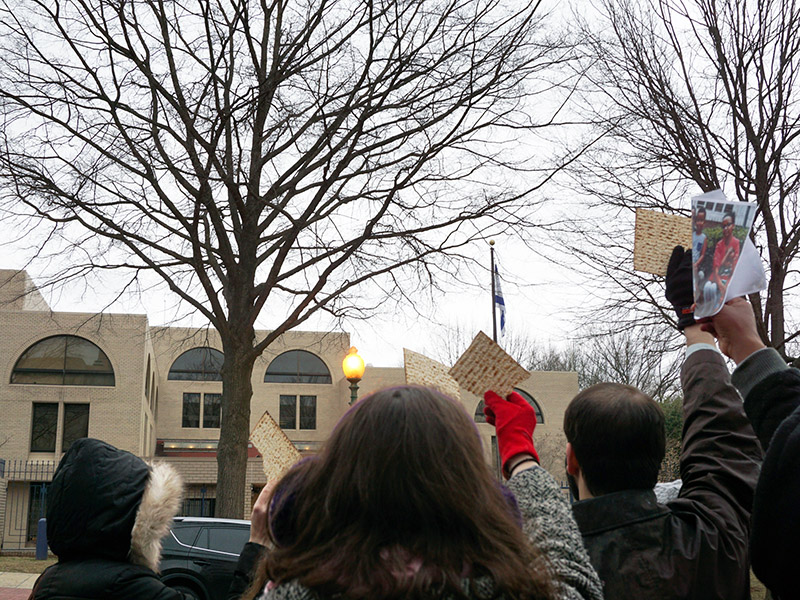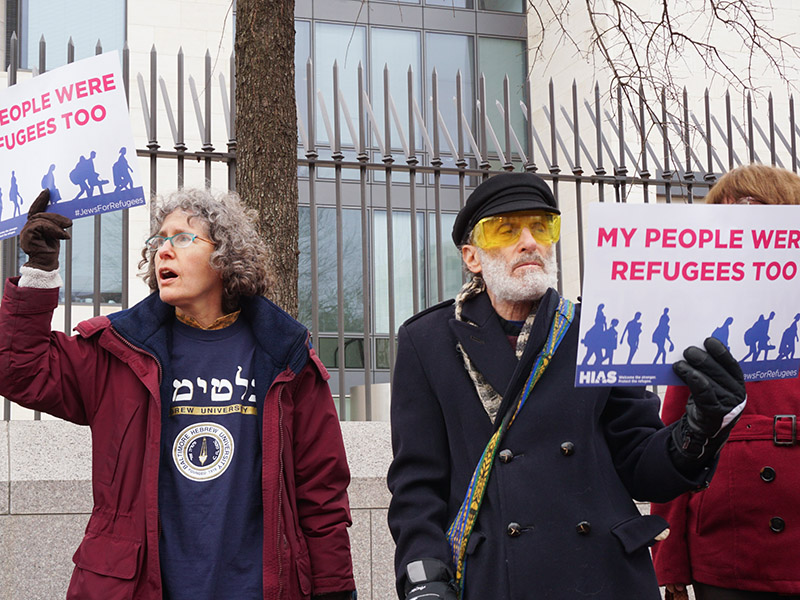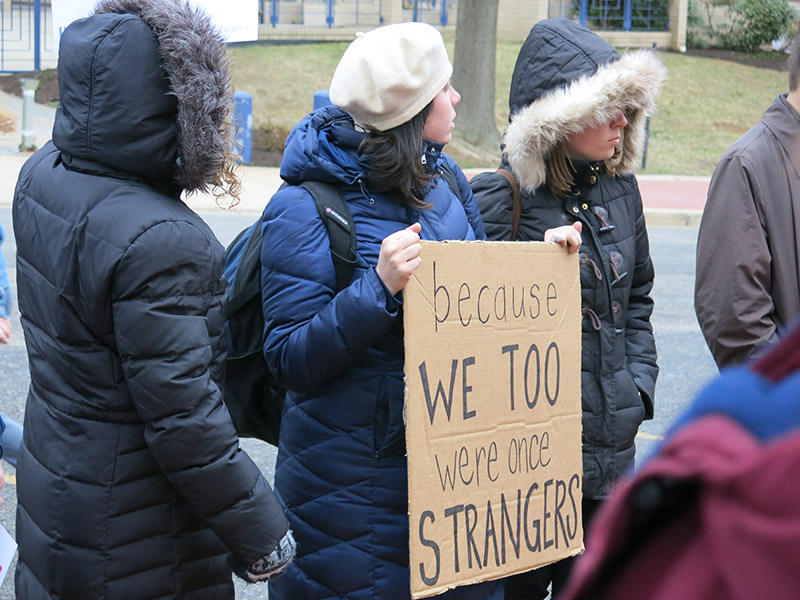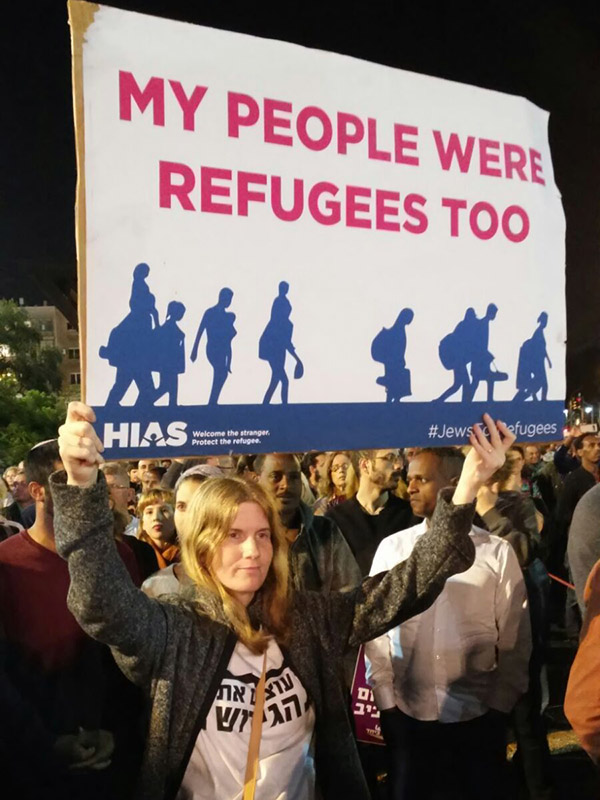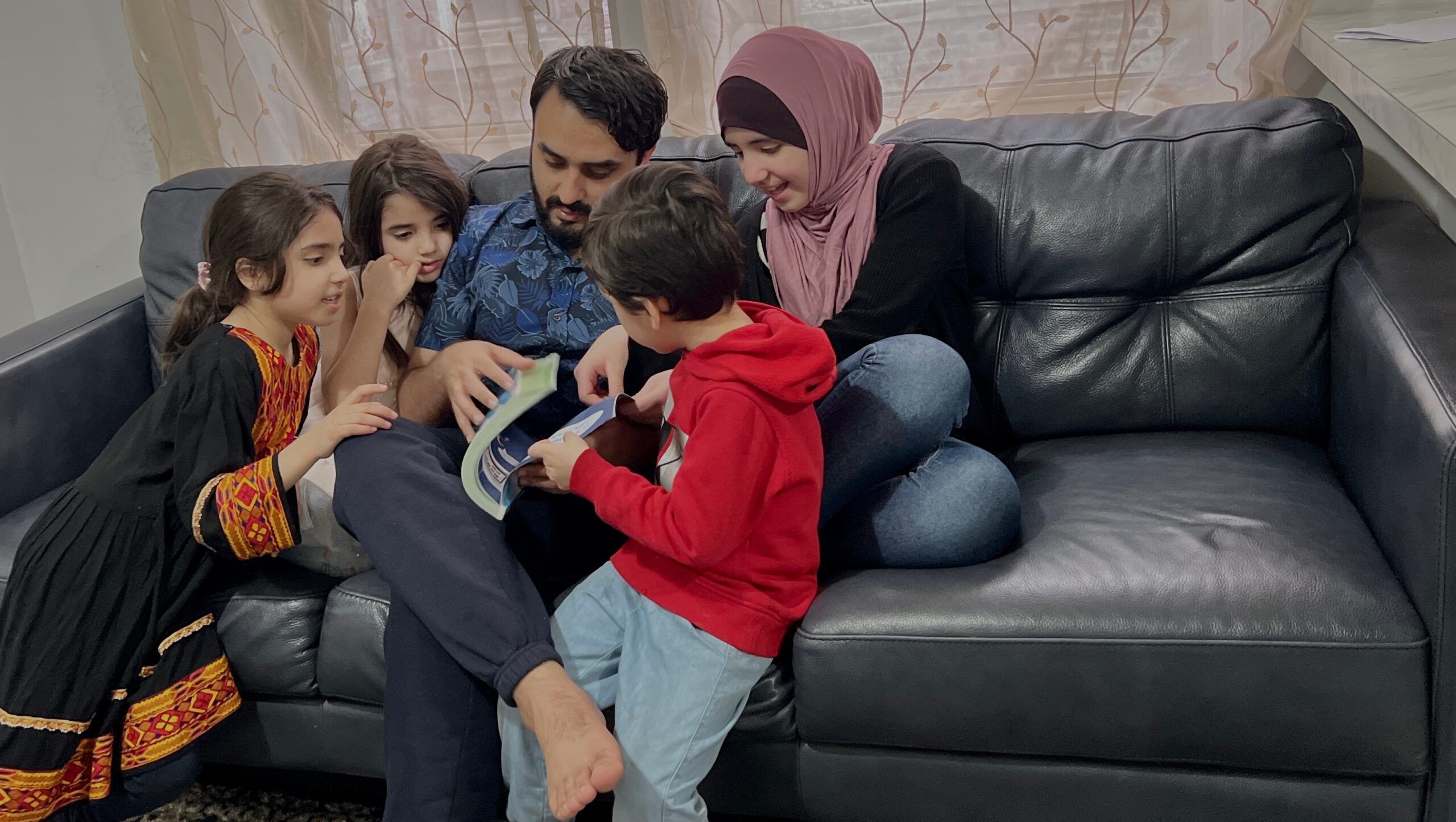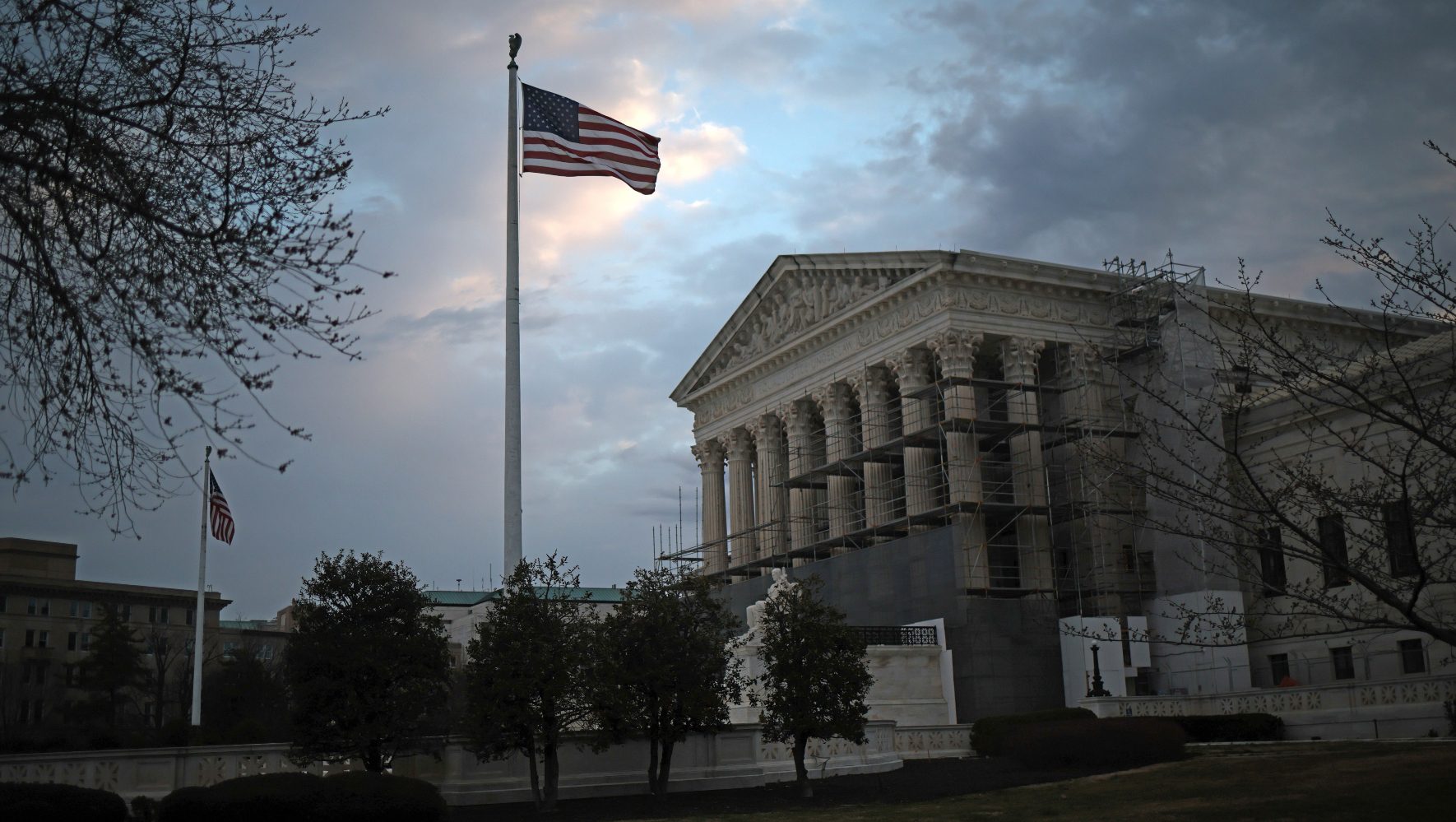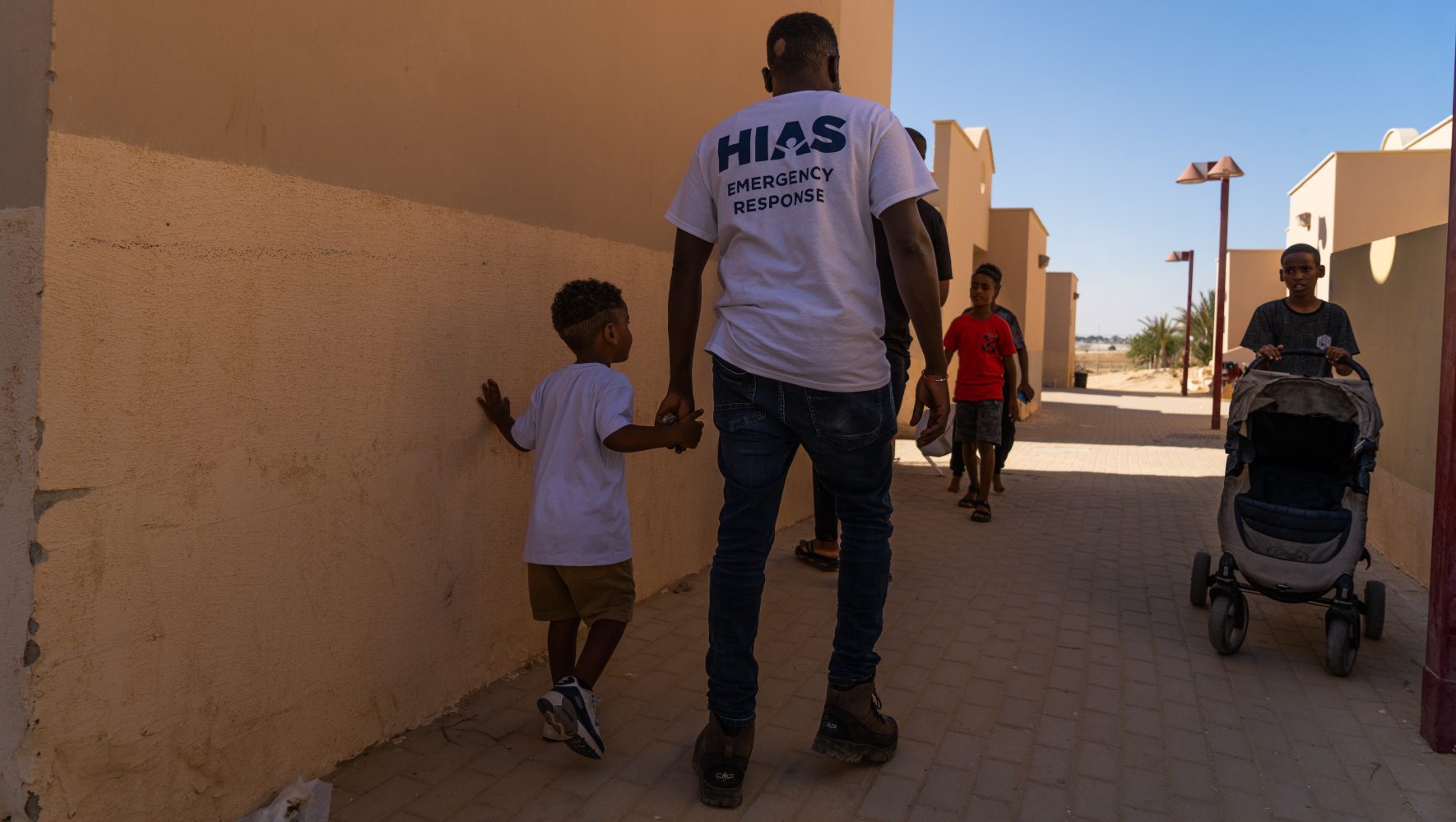Ahead of Passover, Jews Rally for African Asylum Seekers
By Joshua Kurtz, Guest Contributor
Mar 28, 2018
On the evening of Tuesday, March 27, dozens of American Jews gathered outside the Israeli Embassy in Washington, D.C. to show solidarity with African asylum seekers in Israel facing deportation.
The vigil, which was co-sponsored by a number of organizations including HIAS, Right Now, T’ruah, and the New Israel Fund, follows Israel’s decision earlier this year to deport tens of thousands of Eritrean and Sudanese asylum seekers who have fled violence and persecution.
Though deportations were scheduled to begin April 1, the Israeli High Court of Justice temporarily suspended the state’s plans, and the director of Israel’s Population Immigration and Borders Authority recently said that the government would consider offering permanent status to some asylum seekers from Eritrea and Sudan if others agreed to leave.
Additionally, a Jerusalem court ruled that desertion from the Eritrean military may serve as legitimate grounds for refugee status. In response, Israel’s Deputy Attorney General ordered the Population and Immigration Authority to review the applications of detained Eritreans who were denied asylum.
During the demonstration in Washington, attendees heard from Rotem Ilan, the Director of Immigration and Status at the Association for Civil Rights in Israel, as well as from an Eritrean asylum seeker named Yakob Hagos, a representative of the Torture Abolition and Survivors Support Coalition, who addressed the socio-political conditions in Eritrea and the dire need for a humane and just asylum process in Israel.
Days ahead of the Passover holiday, Rabbi Sid Schwarz of Adat Shalom, a reconstructionist congregation in Bethesda, spoke briefly about the situation in Israel in the context of the Jewish liberation story.
“In the biblical story of the exodus,” he noted, “we are told that the Pharaoh hardened his heart, which is a way of saying that he didn’t care about the fate of his Hebrew slaves. We know what hard hearts look like.”
“Let Israel be a model,” he continued, “for us to open our hearts, not harden our hearts.”
The group also sang Dayenu, read from HIAS’ Haggadah Supplement, and spoke about the symbolism of the Seder Plate as it relates to Israel’s plan to deport individuals fleeing violence.
“We taste the tears of those fleeing oppression in their countries of origin,” demonstrators recited as they passed around celery and bowls of salt water. “We taste the tears of the Eritrean and Sudanese asylum seekers who are suffering in detention in Israel.”
Participants at the vigil also stood in solidarity with all those in Israel who have spoken out for Eritrean and Sudanese asylum seekers.
On Saturday, March 24, over 25,000 people, including members of the HIAS staff in Israel, attended a rally in Tel Aviv’s Rabin Square to publicly oppose the planned imprisonment or deportation of tens of thousands of asylum seekers.
Our #Israel staff were among the 25,000 people that participated in the rally against the deportation of African #asylumseekers in #TelAviv’s Rabin Square on Saturday evening. #Israel #LetUsHelp pic.twitter.com/pU9yEW4Z2E
— HIAS (@HIASrefugees) March 26, 2018
Organized by Sudanese and Eritrean asylum seekers, Israeli residents of South Tel Aviv, and several organizations, this protest was part of an ongoing campaign against the Israeli government’s plans.
In both Washington, D.C. and Tel Aviv, the rallies took place at a moment of great uncertainty over whether the Israeli government will follow-through on its planned deportations.
Despite the Israeli Justice Ministry’s earlier announcement that men over the age of 67 would be exempt from deportation, asylum seekers above that age have begun receiving notices of deportations.
This week, Haaretz reported that a 59-year old Eritrean grandfather was issued a deportation notice after the state mistakenly determined that he was 32. He became the sole supporter of two grandchildren after their parents were brutally attacked in a racially-motivated hate crime.
His deportation was temporarily halted after HIAS filed a petition on his behalf, though the state still plans to deport him in the coming months.
Over the past several months, everyone from former IDF soldiers to rabbis in Israel have been outspoken in their resistance to the state’s plan.
In the U.S., hundreds of rabbis signed a letter urging Prime Minister Netanyahu to reverse the state’s plan to deport asylum seekers. And earlier in March, over a dozen rabbis in the Greater Washington, D.C. area met with officials in the Israeli Embassy to discuss the American Jewish community’s opposition to the deportations.
“We all heard from from our congregants about this issue,” Rabbi Aaron Alexander of Adas Israel Congregation commented.
“People want to understand why this decision is being made. Some people find it extremely difficult to justify, in light of the worldwide refugee crisis and how the Jewish community here has advocated against President Trump’s travel ban.”
“As Jews, we are preparing for Pesach, the Jewish people’s epic story of our redemption and freedom,” Rabbi Shmuel Herzfeld of Ohev Shalom noted. “And we are deeply troubled by the Israeli government’s policy of imprisoning and deporting asylum seekers from Africa.”
Joshua Kurtz is a Community Organizer and Avodah Corps Member at HIAS. Check out HIAS' 2018 Haggadah Supplement, which explores the symbols of the Seder Plate in the context of the contemporary refugee crisis.
